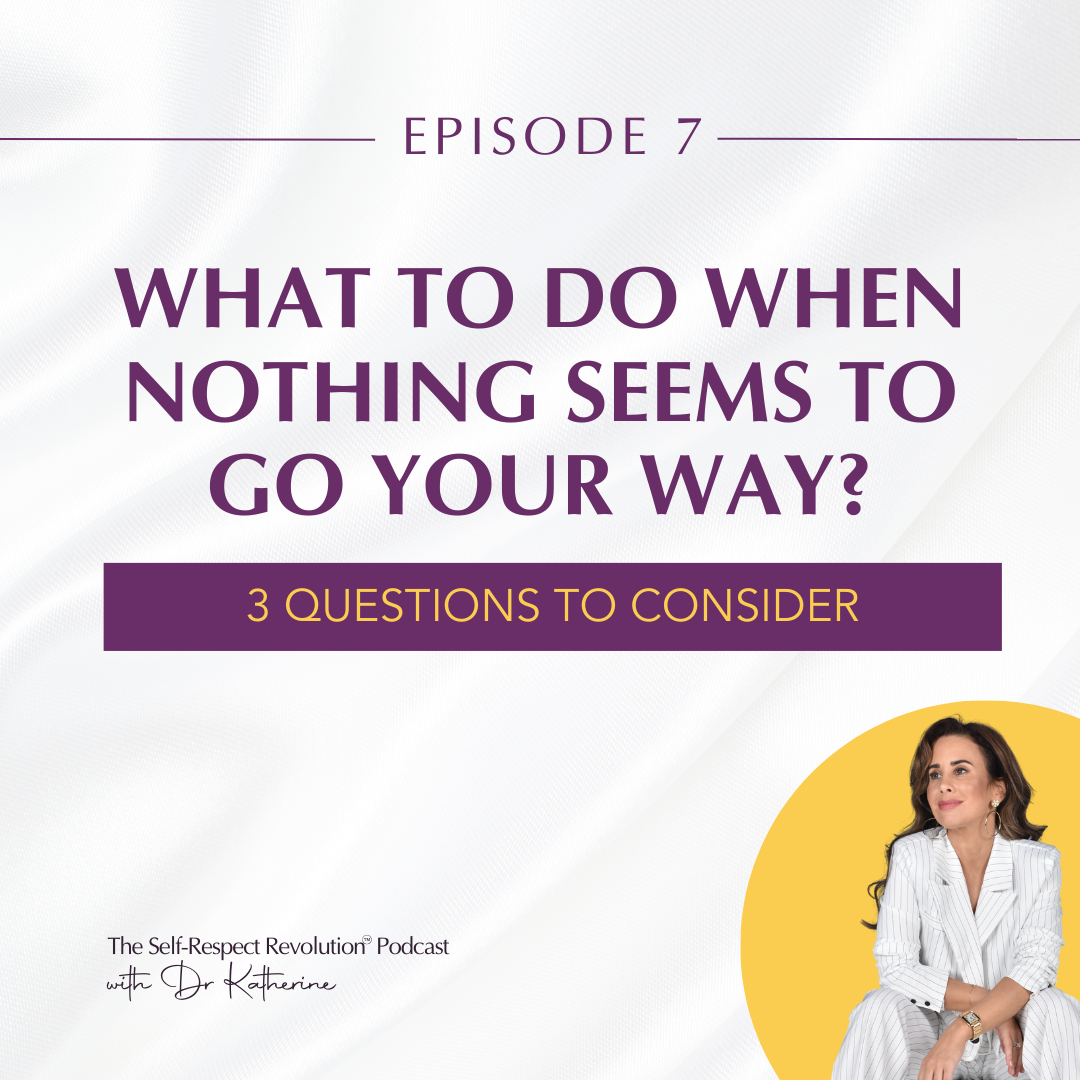
S1 EP7 – What to do when nothing seems to go your way? 3 questions to consider.
When nothing seems to go your way, here’s 3 questions to get back on the journey to happiness.
S1 EP2 – How to set and protect your boundaries (without feeling like a b!tch)
Hey there, fabulous listeners! 🌟 This episode promises to be a game-changer for every woman who’s ever questioned her worth, felt unsure about her boundaries, or grappled with self-respect.
In this episode we:
As always, your feedback is my fuel. 💌 I’d love if you could share which insights touched your heart, reshaped your thoughts, or inspired a change. Thank you for joining me on this transformative journey. I’m Dr. Katherine Iscoe, and until our next heart-to-heart, stay fabulous 💖
[00:00:00] Welcome back to another episode of the Self-Respect Revolution, a podcast where we explore how self-respect shapes who we are, the decisions we make, and the lives we live as leaders, best friends, mentors, parents, and entrepreneurs. My name is Dr. Katherine Iscoe, and once again, I’m your proud host for episode two, and I’m so excited to dive into episode two with you because we’re going to do three things.
Number one, I’d like to share a very personal story, one that I know has resonated with so many audiences. It’s, I’ve always had it in my past keynotes, and I’ve included it in my brand new keynote, The Self-Respect Revolution. And it’s really touched so many people, and I really, really hope it touches you as well, because…
I believe it really embodies and shows what self-respect looks like in action. The second thing that we’re going to do is break down that story into usable parts, understanding, okay, what are those little nuggets of wisdom that we can apply into our own lives? And
[00:01:00] number three, we’re going to dispel some myths.
Dispel some myths when it comes to standing up for ourselves, boundaries, and self care. Because I think if we can actually understand what they look like and how we can benefit from them, we’ll actually do them. But first, I have to, uh, I guess live up to my promise of Episode 1. If you remember, what I asked you to do is to take part in a little challenge, which was to just think about…
Are you avoiding having a tough conversation with someone because maybe you’re worried about causing conflict or you’re worried that they’re going to hate you? Being there, done that, totally get it. What I also said is, what if we just change our perspective in a small way? And I promise you I was going to…
Tell you how to change that, like, little, little bit of a switch in your mindset to help you stand up for yourselves. Now, this is not just me saying it. I’d like to share a, just quickly, a
[00:02:00] study that was done at a Buffalo University that really asks a question. Why is it that some people can stand up for themselves even in challenging situations and other people can’t?
A few different conditions of the study, but in short, there was condition one where they got the study participant to stand up for themselves and voice their opinion to a group that disagreed with them. So what this would look like as an example would be that, let’s say you want to go with Google Drive.
So you speak up and you say that to your team, even though you know that they all want to go with Dropbox. In Condition 2, basically the same thing. So they got the subject participant to stand up and voice their opinions. Hey, I want to go with Google Drive, even though they knew everyone else wanted to go with Dropbox.
But here’s the small little difference. The researchers told the subject participants, and I quote here, express your opinions and demonstrate your core values. And here’s what they found. They measured some physiological
[00:03:00] factors, the stress on the heart. And what they found is that in condition one, when you knew that everyone disagreed with you and you weren’t speaking from the heart, speaking, you know, your values and opinions, you knew that you were going to have to conform.
Their hearts beat really, really fast, but their arteries were very tense. They constricted, meaning that the heart beat inefficiently and the body and mind perceived the situation as a threat. Whereas in condition two when they were asked, yes, it’s going to be hard, but what we want you to do is voice your opinions and values, what they found is their participant’s heart still beats really, really quickly, but their arteries were more relaxed, meaning that the heart can beat more efficiently.
So what does this tell us? Well, if we take it back to our own world, how can we change our mindset from a, Oh my God, if I stand up for myself, I have so much to lose, there’s no point, I’m just gonna have to go with what they [00:04:00] have to say. How can we change that to thinking, I wonder if I stand up for myself and I don’t expect anything, but I just think, you know what, I’m going to express what’s in my heart, what matters to me, my opinions, my values.
I wonder what would happen then. I wonder if I would feel relieved. I wonder if I would feel empowered. I wonder if I would feel less stress. What do I have to gain rather than what do I have to lose? Now, maybe you’re like me thinking, Oh my God, that still sounds so scary. Well, I’d like to share. an inspiring story that means so much to me, and I hope it does you as well.
The story is of my great grandmother, who was a Jew, and this took place back in 1938 in Bratislava, Czechoslovakia, which was formerly under a communist regime. And my great grandmother was at home, and she, she had heard about these raids where Hitler’s army would come Two apartments unannounced and basically kidnapped people, the dirty
[00:05:00] people, the Jews, the homosexuals, and the disabled because Hitler wanted to get rid of all those people.
My great grandmother was one of them. So she heard a knock at the door, she opened the door, and there were two grown men with rifles pointing the rifles right at her and said, come with me. Now to paint a picture, her daughter was standing right next to her. This is my grandmother. Obviously, she was about 12 years old and she fainted.
And there was my great grandmother, who’s about 5 foot nothing on her good day, my size. So a teeny tiny woman. Just picture this. She’s standing there. She can’t go to her daughter. That’s helpless. And she knew the next decision that she made was going to decide her family’s fate. She took the men. Over to her balcony, which was about five floors up, and she said this, You can either throw us off right here, or you can shoot us right now, but we’re not going with you.
The two men left with, so I’m told, their tail between their legs. And I can relate to this because my great grandmother was a very scary woman. Now the rest of the
[00:06:00] story is very long, complex, but my great grandmother was able to escape. She escaped with her two children and hid in a convent. Eventually escaped to New York City, like many other immigrants.
She knew no one, didn’t speak the language, but she was able to rebuild her wealth, and she was a force to be reckoned with until her last dying day. Uh, she was very stubborn, she was very confident, and my mother constantly reminds me that I’m basically her reincarnated. And I will take that as a compliment, thank you very much.
But getting back to the story. Now, I’m very conscious that this is an extreme example, right? Like, this is a life and death example, but I think we can learn a lot. Thank So how let’s break down the story now into usable parts. Let’s understand exactly what she did so we can apply it into our own lives.
And really, if you look at her story, there’s three different beautiful golden nuggets. Number one, she knew her boundaries. She knew what was okay and what
[00:07:00] was not okay. But she didn’t wait until there was, you know, guns pointing at her to think, okay, is this? Uh, do I agree with this situation or not? And I think this is something that we need to consider more in our own lives because we wait until something has happened where, you know, we’re in an argument, we’re at a grocery store and we see someone else speaking poorly to someone else.
We wait until then to sort of decide and weigh up, okay, should we take action or should we not? I truly believe that this is something that you can do right now after this podcast and take an A4 piece of paper, draw a line. Down the center and say this is what I think is okay, and this is what I think is not okay.
And understand when you won’t cross that line. Now the second thing is that she knew how to stand up for herself. And I know this comes very naturally to some people like my partner. He’s, uh, has no filter whatsoever, and he has no qualms standing up for herself. Whereas me, Perhaps as a
[00:08:00] Canadian, I know I always joke about this, but we’re told to never create conflict.
We have a gene in us that says, say sorry before anyone else says sorry. So, I’m more on the other side of that spectrum. But my grandmother, you know, sort of knew it. So, I need to say to myself, okay, if I’m going to be in that situation where I’m feeling a bit of conflict, How am I going to start that sentence?
For example, am I going to start that sentence with you or am I going to start that sentence with I? The difference is you is blame, I is responsibility. We’re gonna get to that in a tiny bit what that actual difference is. Now the third component, why, why do we stand up for ourselves? Why do we have those boundaries?
And it’s actually really simple. It’s because we have to take care of ourselves. And yes, it is that hashtagable term, self care, which by the way, drives me nuts on TikTok because it’s bastardized. So let me just clarify what self care actually means, because there is
[00:09:00] this idea that means facials and going to the spa and meditating.
And yes, those are all components of self care, but it misses an important key ingredient, which is. Self care is simply checking in on ourselves and asking the question, What is it that we need right now to ensure the health of our mental, physical, and emotional well being? So in my great grandmother’s case, at the end of the day, it’s like that oxygen analogy.
And this oxygen analogy is That is a story because if she didn’t take care of herself rather than, for example, going to her daughter who had fainted, I wouldn’t be alive today. That’s plain and simple. They would have been taken to a death camp, tortured, and killed. No questions about it. So my great grandmother knew if she didn’t take care of herself, she wouldn’t be able to take care of anyone else.
So if we take that back into our own lives, I
[00:10:00] want to ask you the question, do you have a crystal clear understanding of your boundaries? Do you know, if someone were to ask you, tell me one of your boundaries, would you know that without a doubt? For example, is it okay that your parents tell you how to raise your kids, or is it not okay?
Number two, do you stand up and communicate those boundaries? Do you say, hey mom, I really appreciate all the advice, but I really want to figure this out for myself right now. Are you comfortable saying that? And number three, do you prioritize your self care? Or do you get to the point where you snap and you don’t realize that it has nothing to do with the other person?
It actually has to do with the fact that you’re burnt out. You are at the end of your tether. Have a think about those three questions really deeply and carefully. And honestly, now I want to give you a couple more situations, hypothetical situations as kind of like a speed test. Think about situation numero uno.
Let’s say you’re at the hair salon
[00:11:00] and you know, they finish your hair and you look in the mirror and you’re like, God, what has happened? You frigging hate it. Do you actually speak up and say, thanks for the effort, but I think there was a bit of miscommunication here or do you say, Oh my God, I love it.
And then you cry all the way home while looking in the rear view mirror and thinking, how am I going to fix this? Situation number two, you’re at work and one of your colleagues is going through a divorce. They’re very overwhelmed, they’re burdened, so you’re like, don’t worry about it, I got your back, I’m gonna take over some of your work.
But then, you go on the gram and then you see her like, out at the spa and out with friends drinking and so forth. What do you do? Do you say, Hey babe, can we go up for a coffee today? I just want to chat with you about a couple things. Or do you sweep it under the rug and just, you know, make excuses for her behavior?
Yes? No. Situation numero tree. Got a lot of languages there. Let’s say you’re at a restaurant, you ordered
[00:12:00] steak and it’s very, very much undercooked. Do you send it back or do you like eat around the edges, the edges that are cooked and then just tell the waitress, Oh, actually I’m not that very hungry. Can I get this to go?
And then you feed it to your dog. Hmm. Being there, done that, get it. All right. Let’s do a couple more examples because I’m having way too much fun with this. Example number four. Let’s say your manager approves your flexible working hours, which are 7am. to 3 p. m. so you’re able to drop off your kids and pick them up.
But, then every time you leave they say something like, Oh, leaving early today? Or, wouldn’t it be nice to not have to work a full day? Do you say something? Or do you just sort of suck it up and just think, What an a hole. Number five. During a family gathering, one of your toxic family members makes a remark about how you look or how you’re living your life.
Do you speak up and risk causing a bit of a ruckus or do you just sort of suck it up and just say, you know what? I’ll
[00:13:00] just deal with it and walk away. So in all these situations, do you have a very crystal clear answer about what you would do and what you would not do? This is what I mean about really thinking in advance because I’ve been in the situation where I’ve been that person at the hairdresser who just says, it looks great.
And then I’m like, It’s going to cost me hundreds of dollars to fix this. I can’t do that anymore. So I really need to think in advance and say, okay, how can I speak from my heart? How can I speak the way I usually speak? Not in this. Oh, I learned this on Tik TOK. So I’m going to say this robotically. How would you really speak your mind, your values and your opinions in your way?
So you actually feel good about standing up for yourself because you know the benefits, you know what you can gain, and you’re not thinking about what you can lose. But you know what? I think the best way to really challenge our thinking is to dispel some of these myths. Myths around standing up for ourselves and boundaries.
So myth number
[00:14:00] one, boundaries push people away and make them hate us. Well, no, that’s what the silent treatment does. What boundaries do is clarify what’s okay and what’s not okay so the other person knows. What’s important to you, and what makes you feel safe. So for example, my partner, he’s Croatian, and he has a tendency to, uh, speak like a military sergeant.
And over the years, I’ve had to ask myself, Okay, what’s okay? What’s not okay? What’s okay when, you know, I recognize, Okay, this isn’t about me, this is someone else. He just has to let off some steam. And when is it not okay? And that has made us so much more Close because I’ve said, this is what I need from you.
When you speak to me, this is what I need from you to be cognizant of. It’s made our relationship so much more respectful. Myth number two, standing up for ourselves means that we’re angry, we’re needy, or we are overreacting. Well, if someone says, you know, why are you
[00:15:00] being like this? Why are you causing so much trouble?
Your answer is going to be really simple. The reason why I’m speaking up for myself is because there’s already trouble and I feel that trouble and it doesn’t feel good. And I care for you and I know you care for me as well. And that’s why I’m doing this. Myth number three. Asserting boundaries and standing up for ourselves is trying to control someone’s behavior or tell them what to do.
Well, here’s the difference. If you were to say to someone, you can’t speak to me like that. That’s not a boundary in showing self-respect. That’s actually the start of the bar fight. Because fact of the matter is, they can speak to you like that. And when you have and practice self-respect, you recognize that.
And you recognize. You can’t change how they’re speaking to you, but you can draw a line in the sand and say, this is how I’m going to respond to that knowing that I can’t change them. What I can do is change my response. So when you have self-respect, your response is, when you raise your voice like that, this is what goes on for me, and this is why I might need
[00:16:00] to walk away from this situation.
That’s respect. So when you think about these three myths, what comes up for you? Has there been a little bit of a shift in your mindset? And for me, I think the major take home message is, is that I never need to apologize for showing self-respect. And this has been something that has been very, very difficult for me because over so many years of disordered eating and depression and being And actually not being treated badly by guys, allowing guys to treat me badly, that’s actually a very good catch that I just did.
Allowing that, it’s, it’s taken me a long time to say, actually, don’t need to allow that. But it’s also enabled me to say, what’s okay and what’s not okay when I’m respecting myself. For example, I was a binge eater for many, many years. That’s not showing myself self-respect. The onus is on me, was on me, to change that.
[00:17:00] Another example would be watching TV. What’s okay? What’s not okay? Is it okay to numb myself in front of the TV for hours and hours and hours? Yet bitch about that I’m not getting anything done. No, that’s not okay. That is not okay. That is part of my no We need to change that what is okay is if I’m not feeling well And I need to recharge and rejuvenate in front of the TV I’ve made that very very clear not only for how other people treat me, but more importantly how I treat myself So I hope that all of these concepts have hit home with you But even if just one has hit home with you, I feel like I’ve done my job and I would love to hear, what is that one thing that went, Ooh, that is good.
I get it. That has changed the way I thought. I would love to hear, what is that one little nugget? Because that helps me understand, Okay, What’s resonating, what’s not resonating. And you might be thinking, okay, what is up with the next episode? Oh my goodness. I’m so excited because it is a
[00:18:00] topic that is so important to me that I got it tattooed on my arm.
And if you’re curious what that topic is, you’re going to need to tune in next week by hitting, you know, favorites and subscribe and all that stuff. And maybe. If you can take a few seconds, share this podcast with a friend. I would be so grateful, so grateful to you because even though it takes a couple seconds for you, it means so much to me.
So thank you so much for listening. I’m Dr. Katherine Iscoe. And until next time, stay fabulous.

When nothing seems to go your way, here’s 3 questions to get back on the journey to happiness.
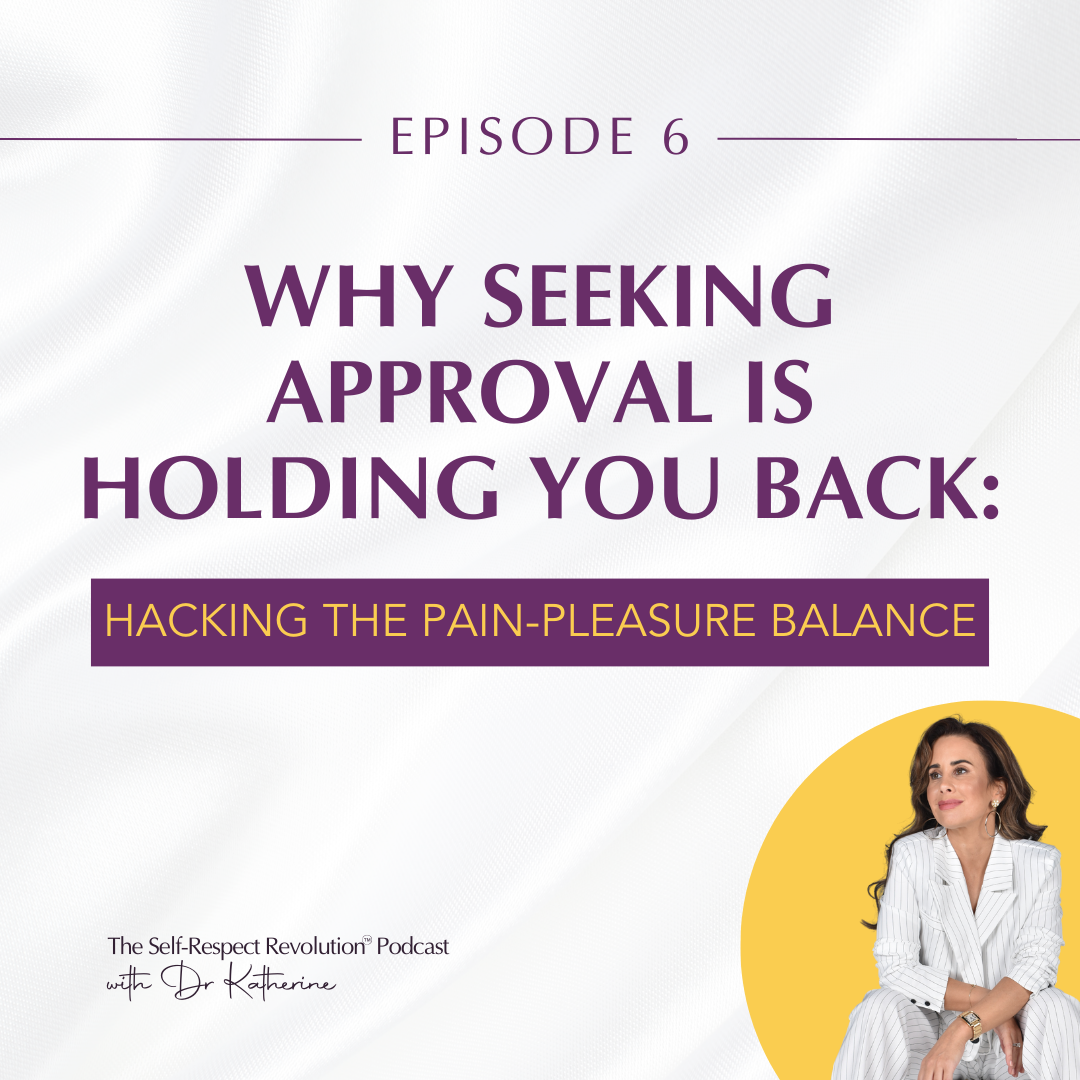
Waiting for a sign to start your life? Here’s why seeking approval is holding you back.
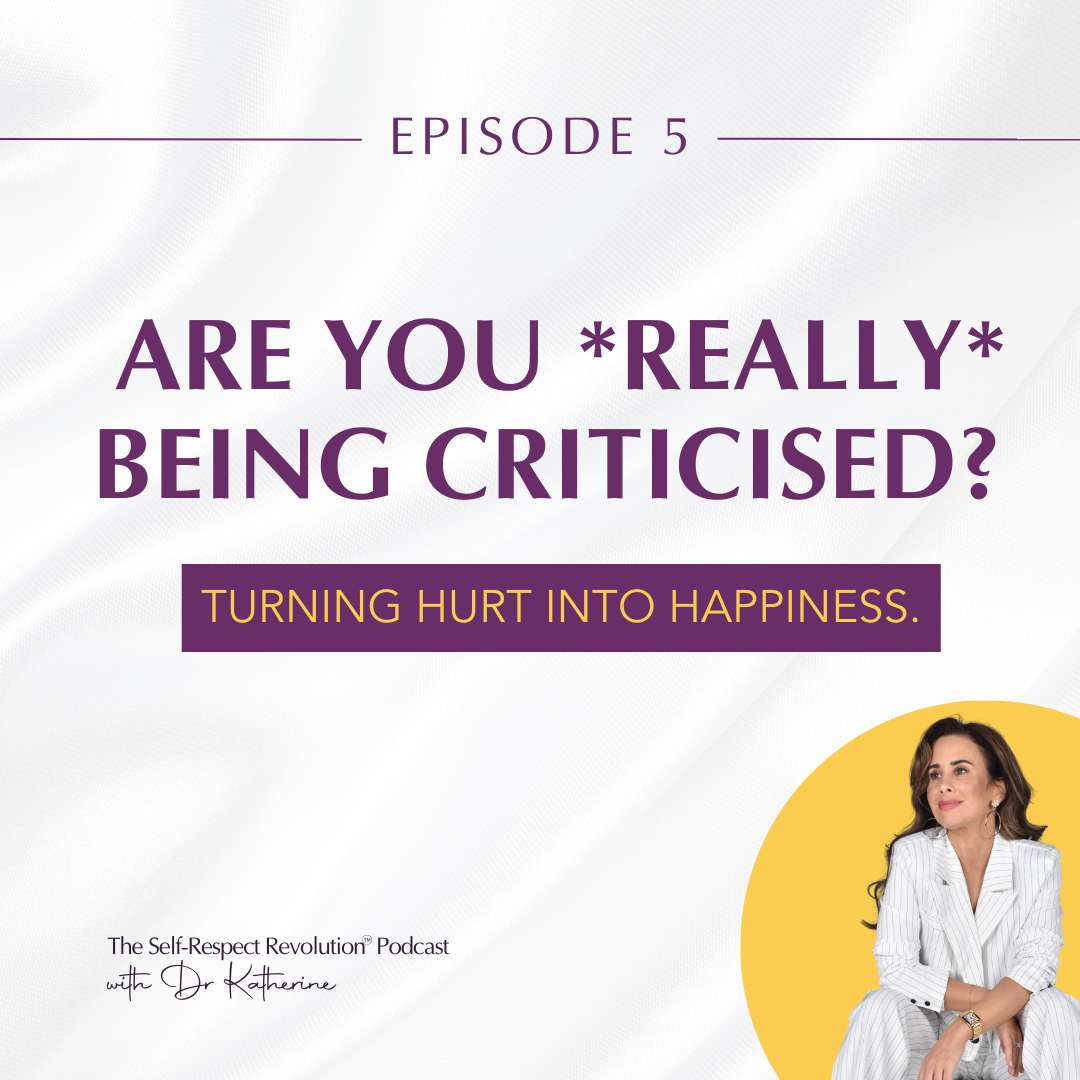
If you’ve ever felt torn between what the world expects of you and what you truly want, this episode is for you.
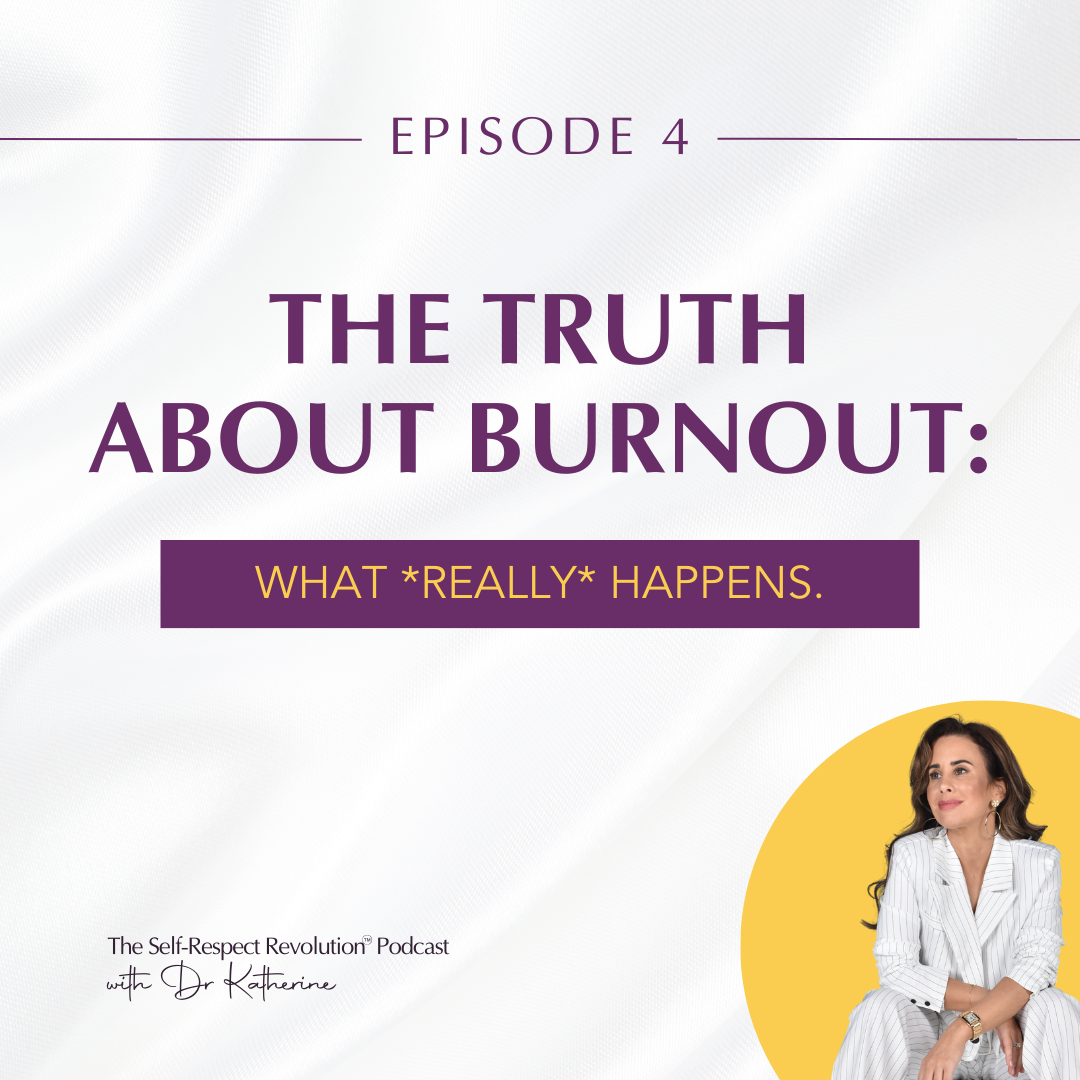
If you’ve ever felt like everyone else handles burnout better than you, this episode is for you.
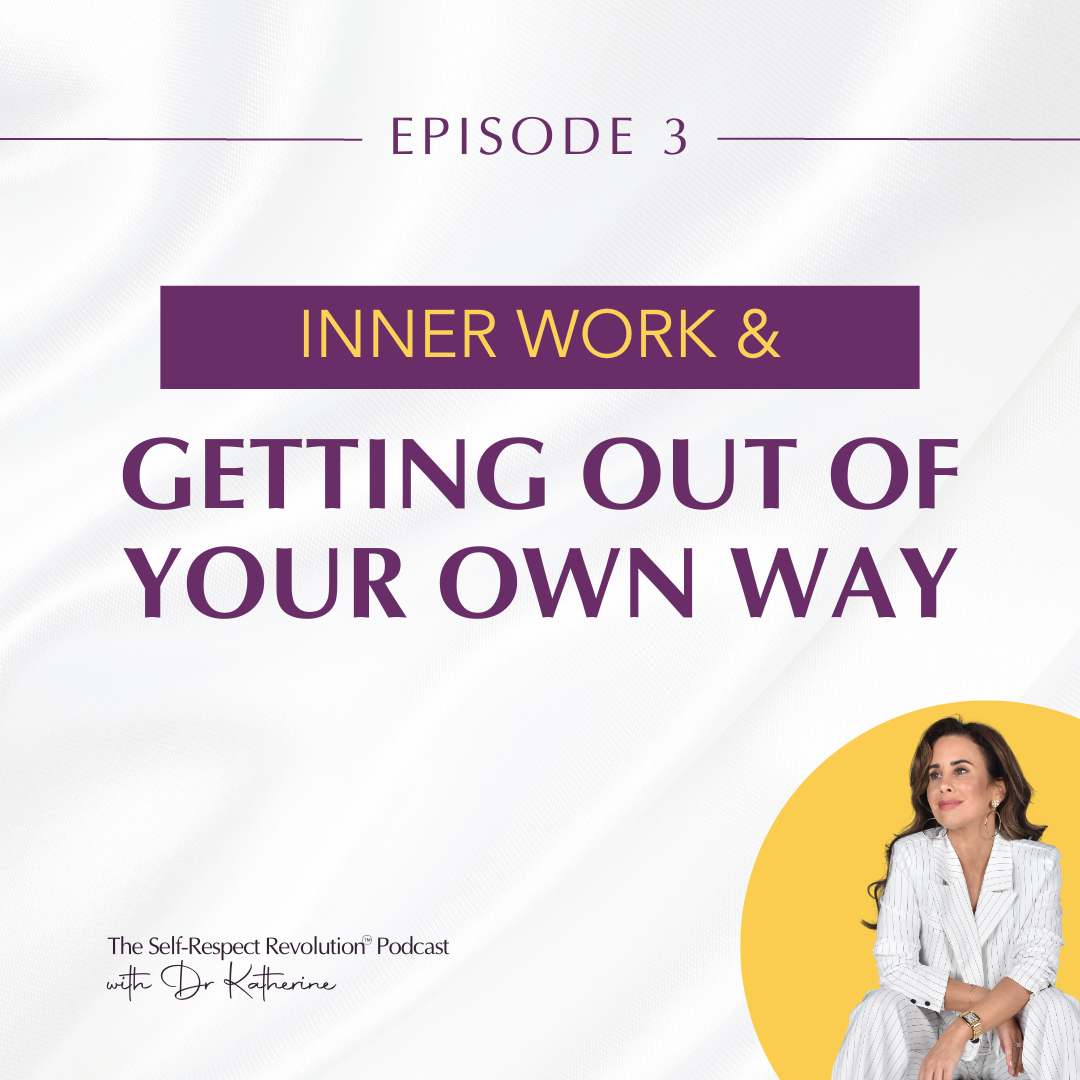
If you’ve ever felt the weight of the world’s expectations, or felt like you’re wearing a mask, this episode is for you.
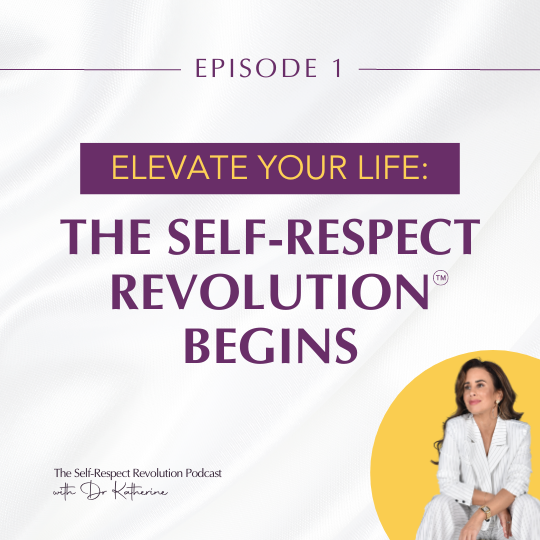
Discover how to elevate your life with the untapped benefits of self-respect and transform the way you live, love and lead.